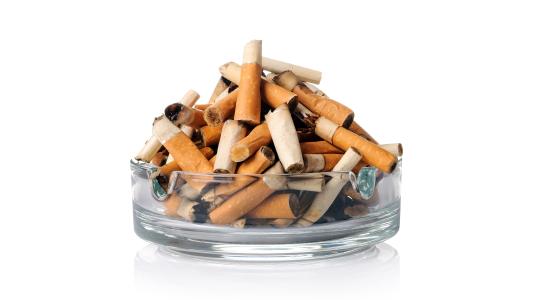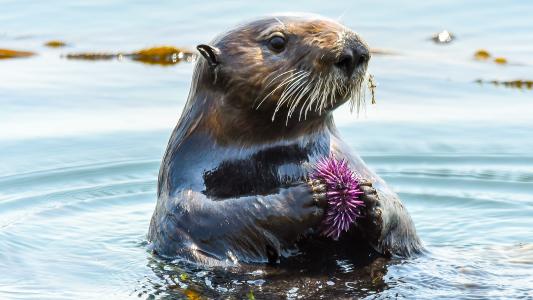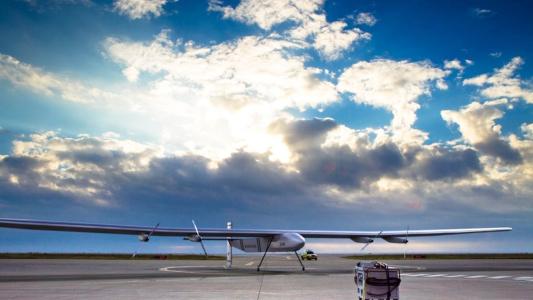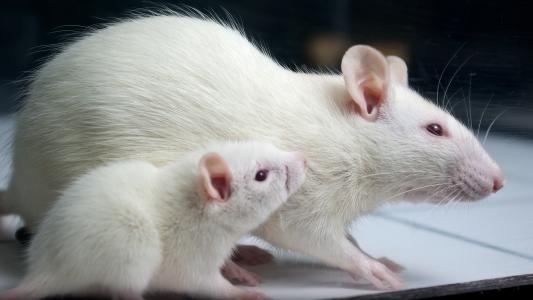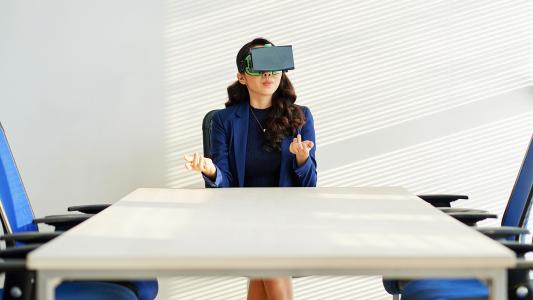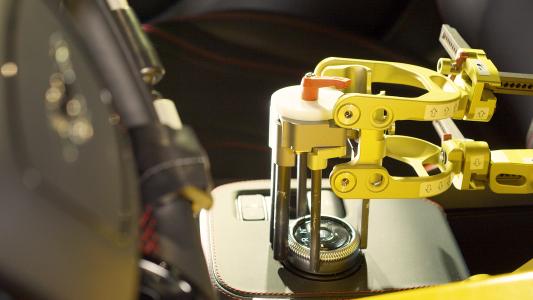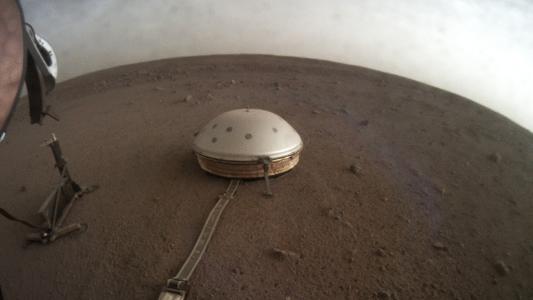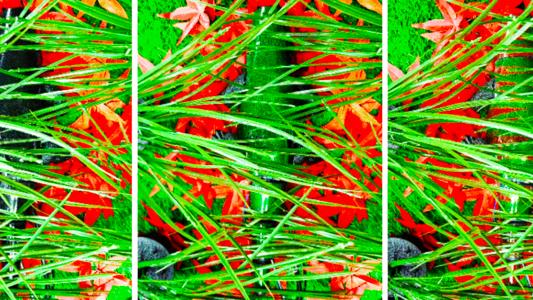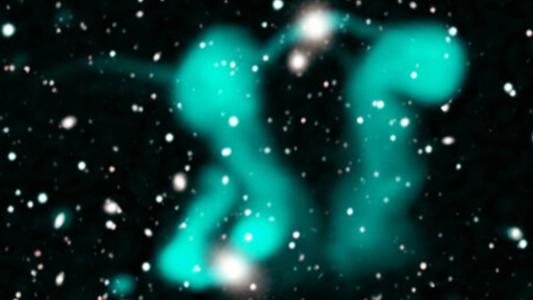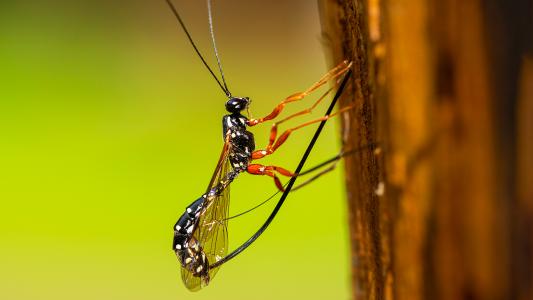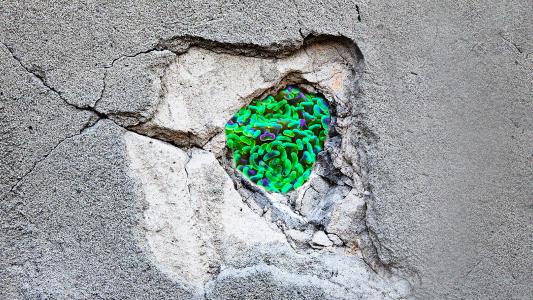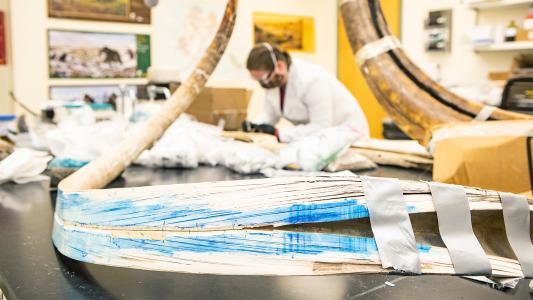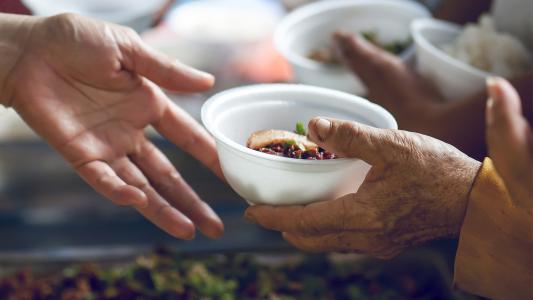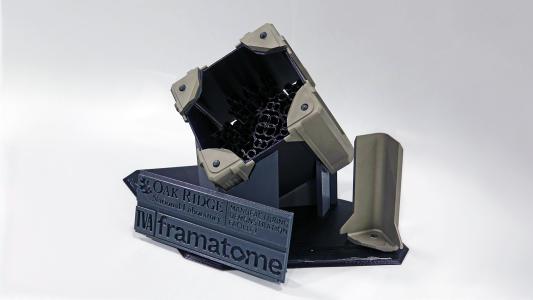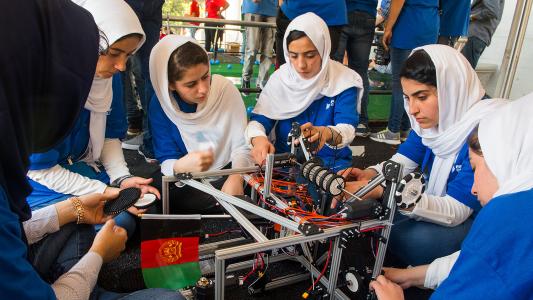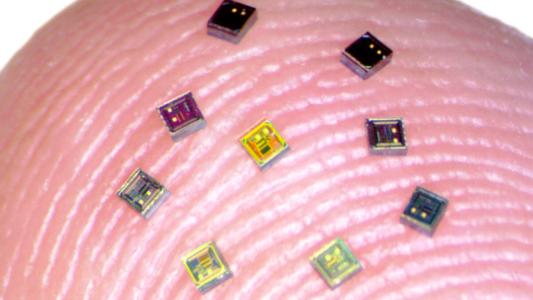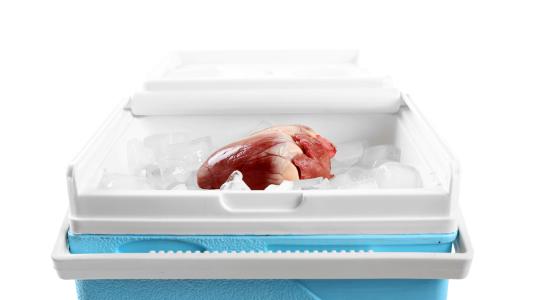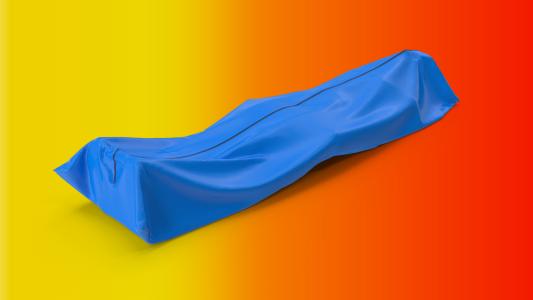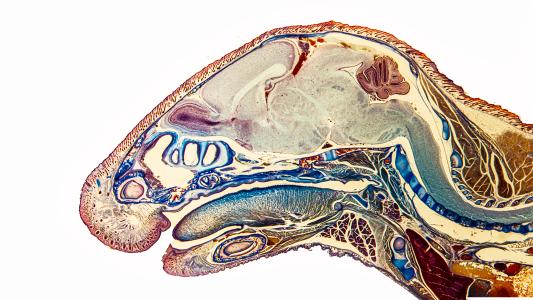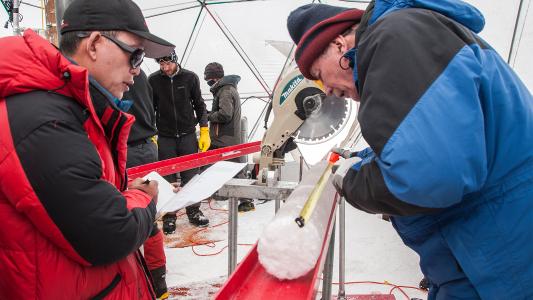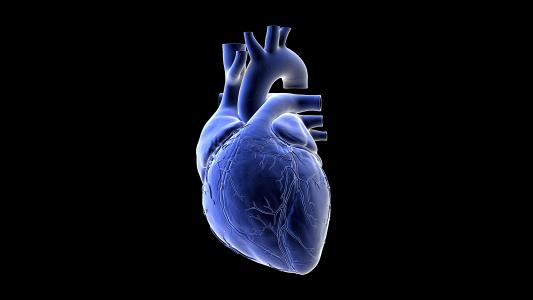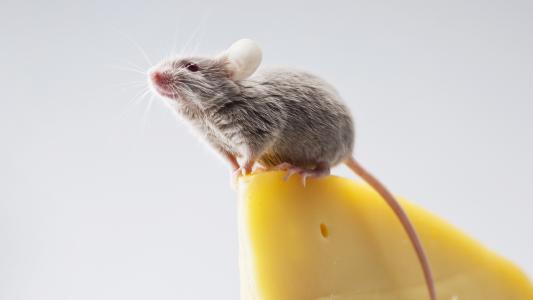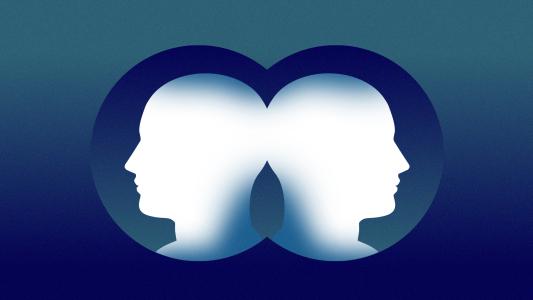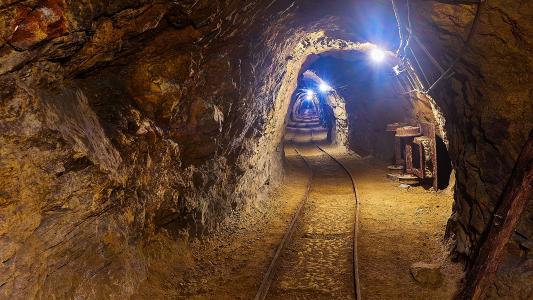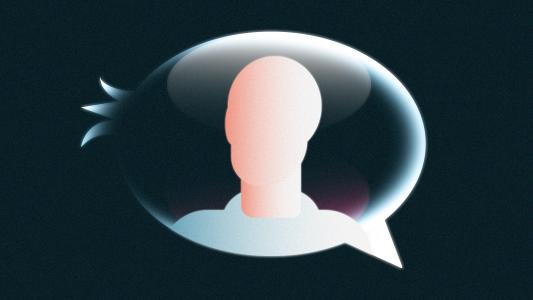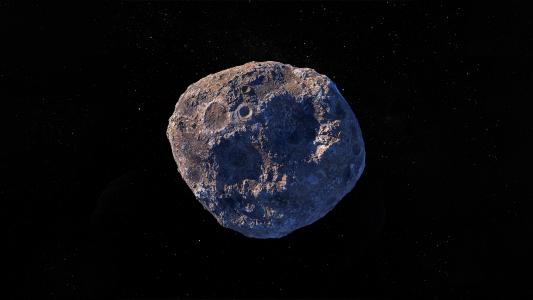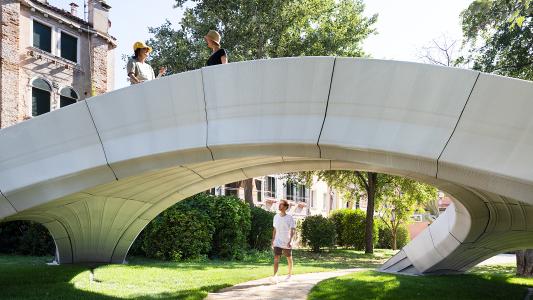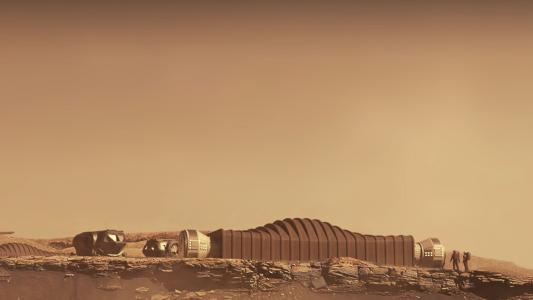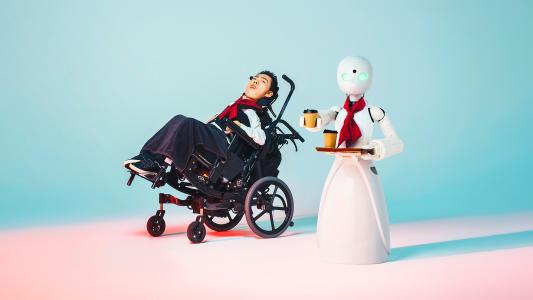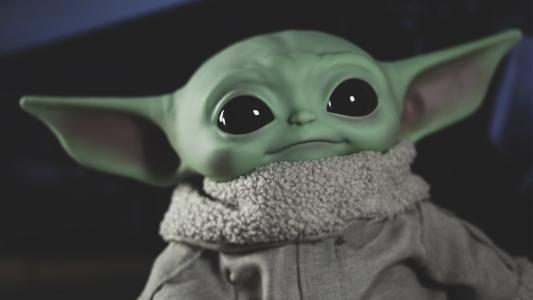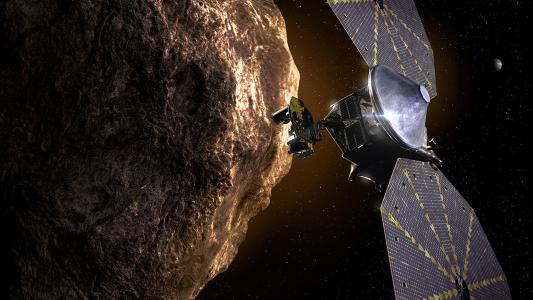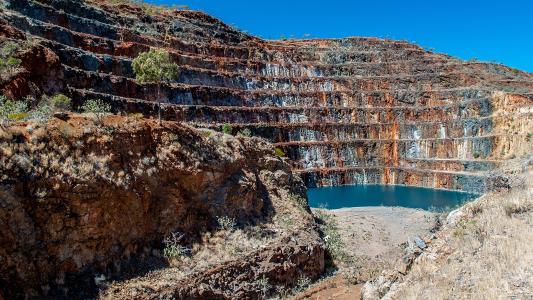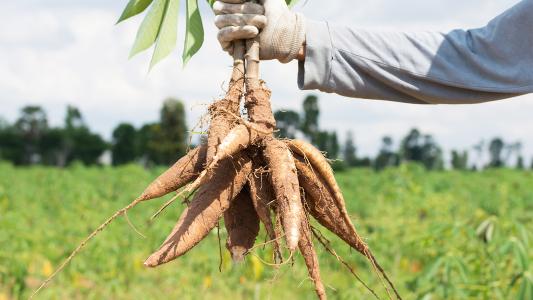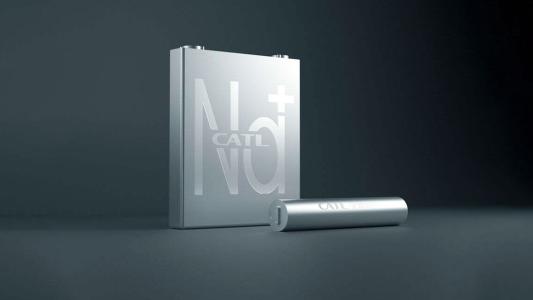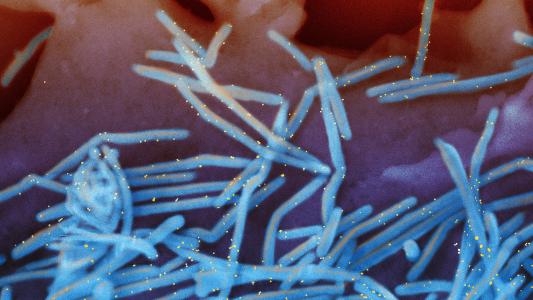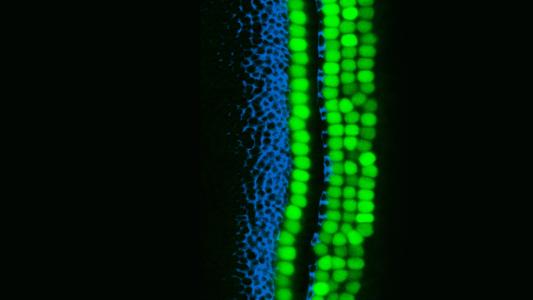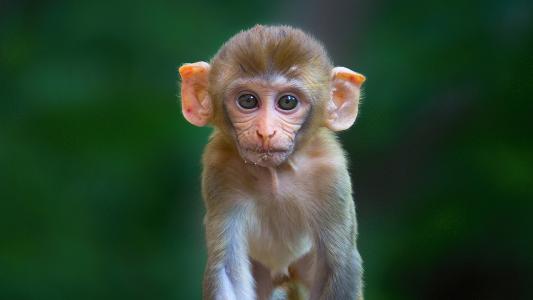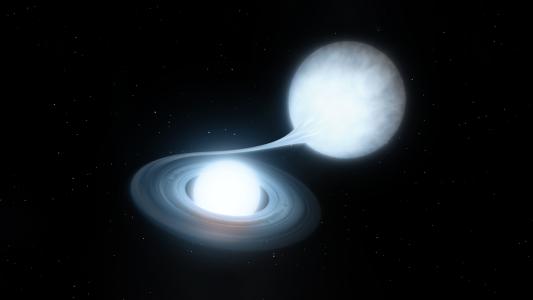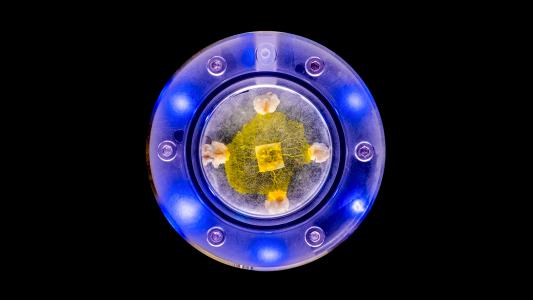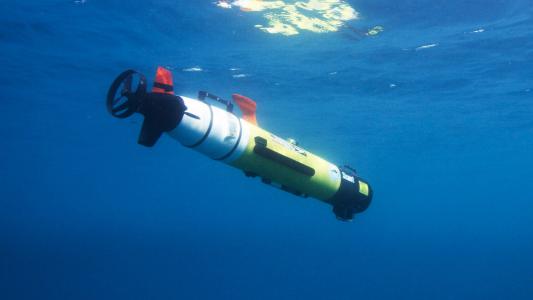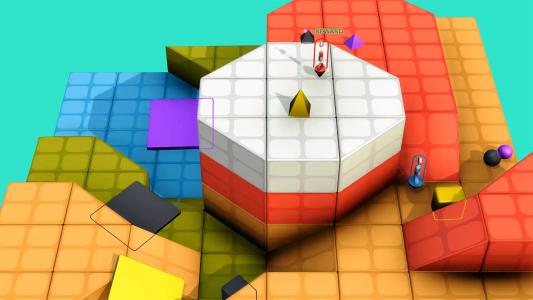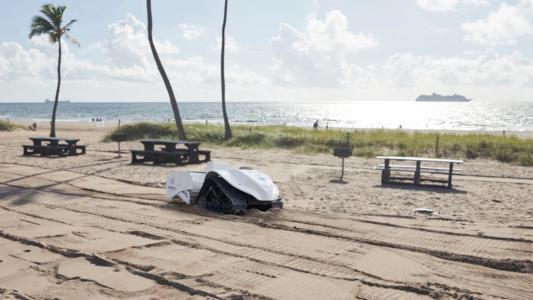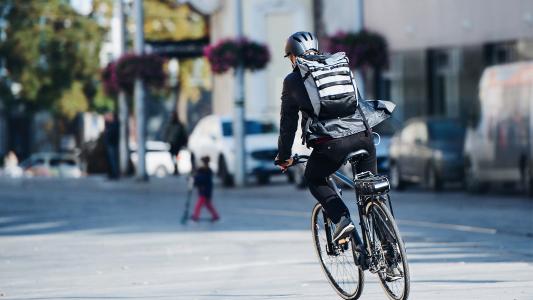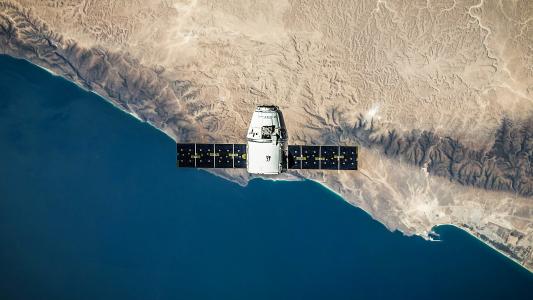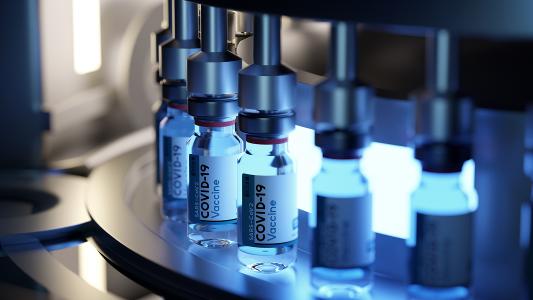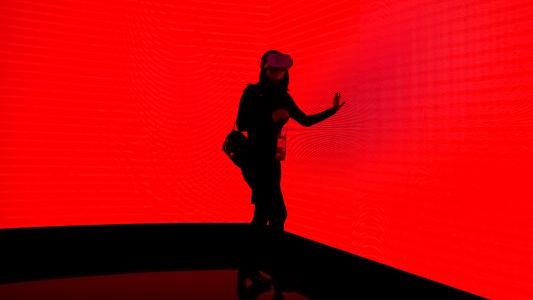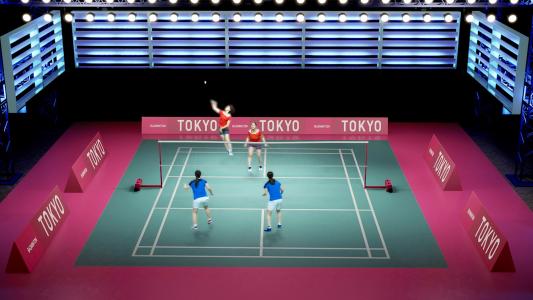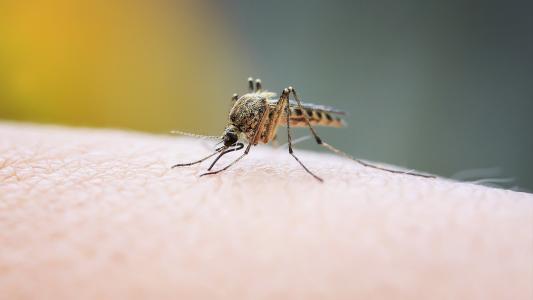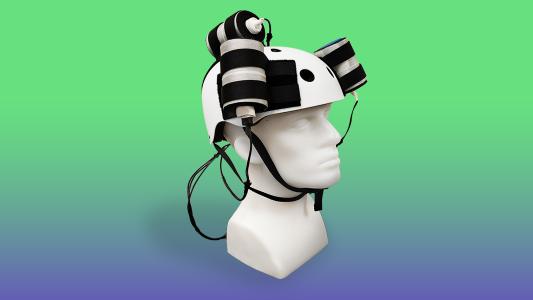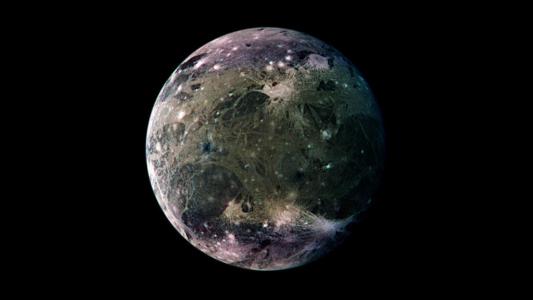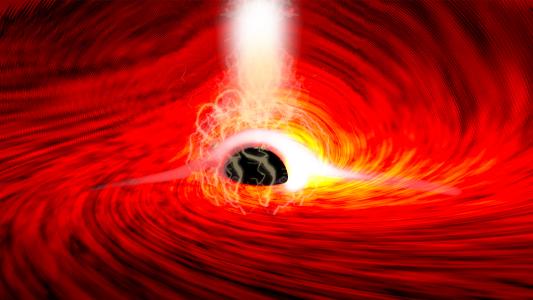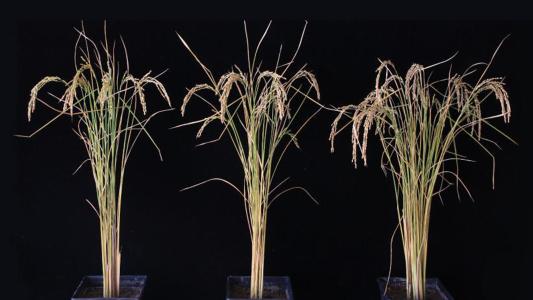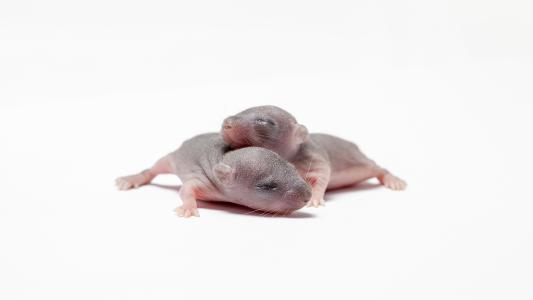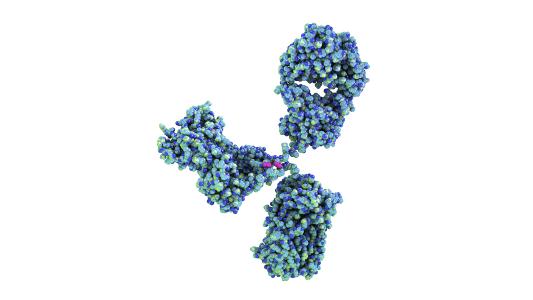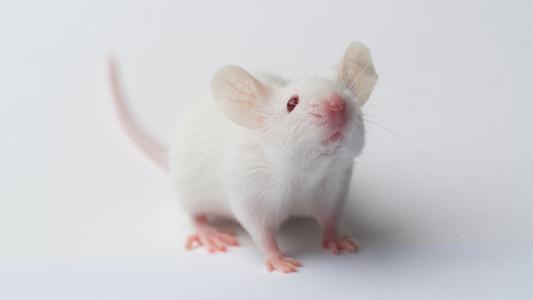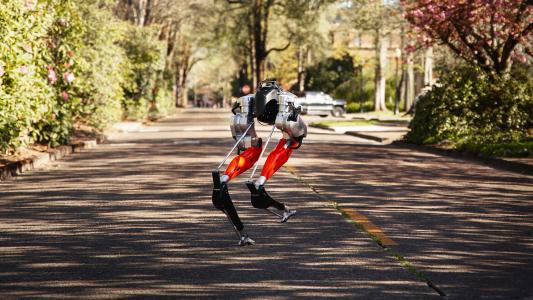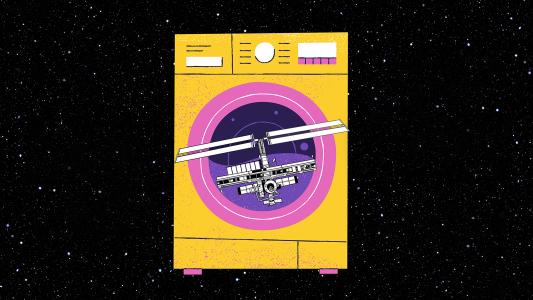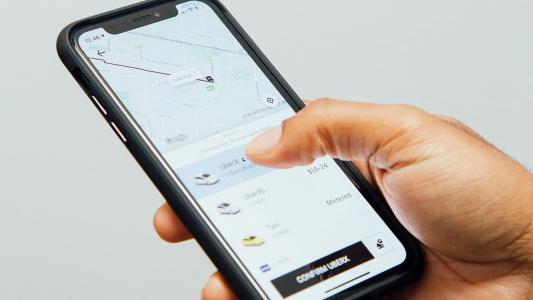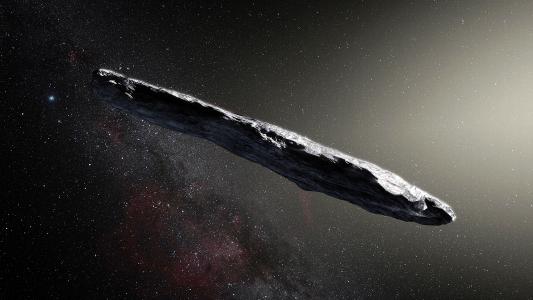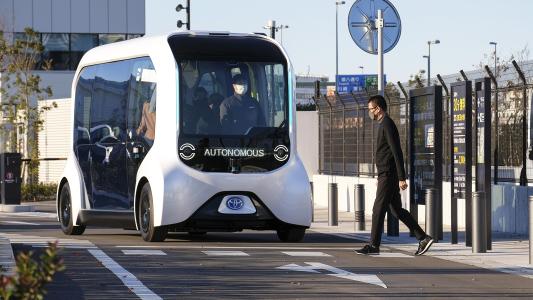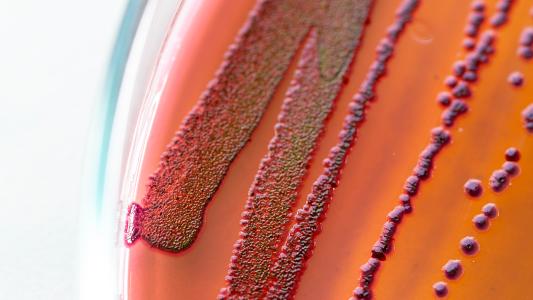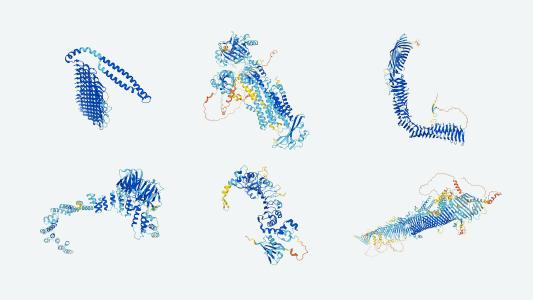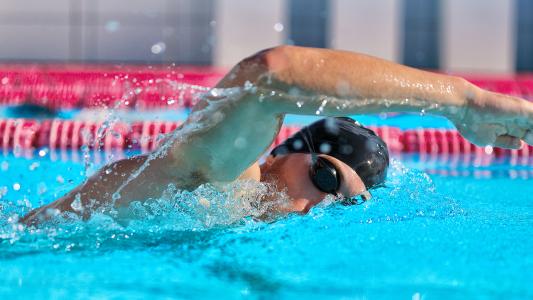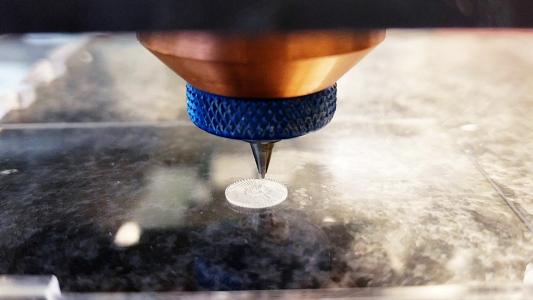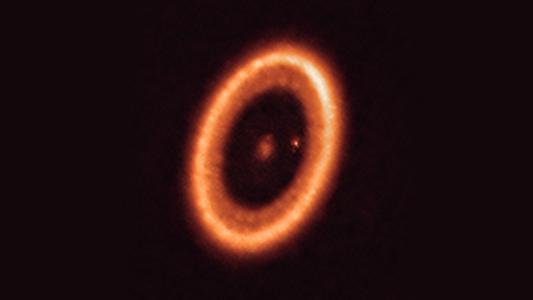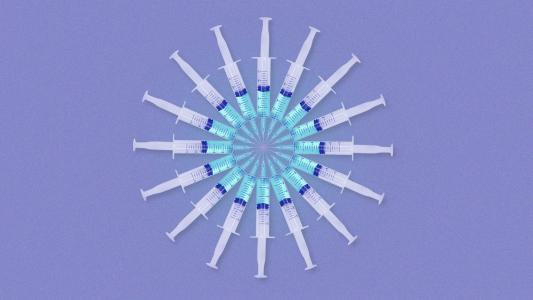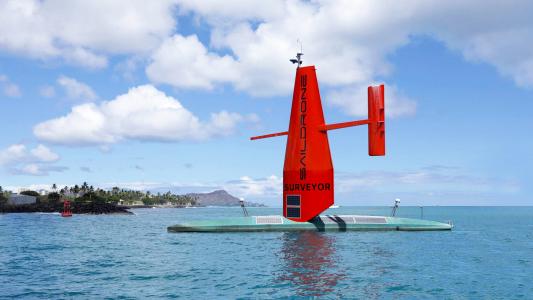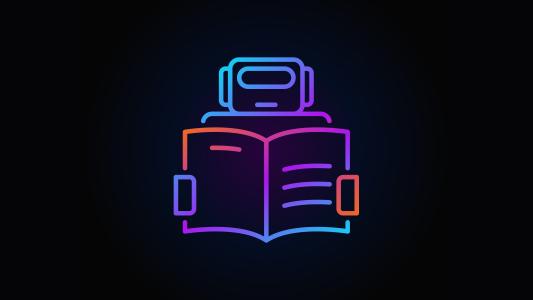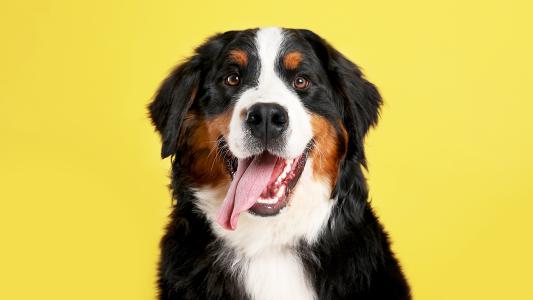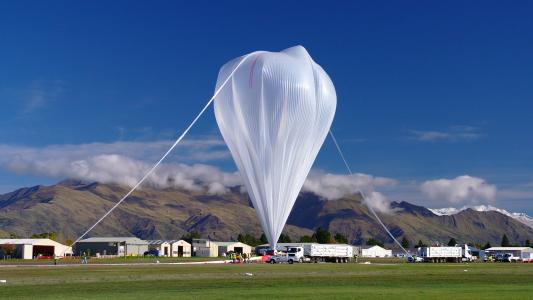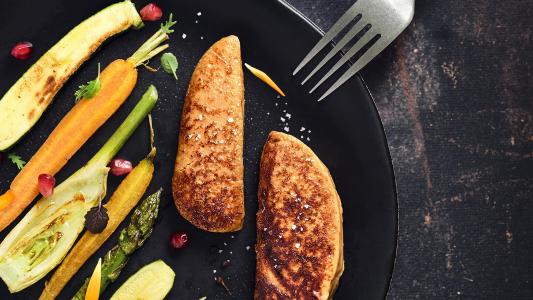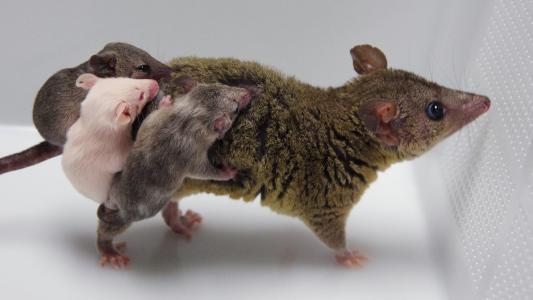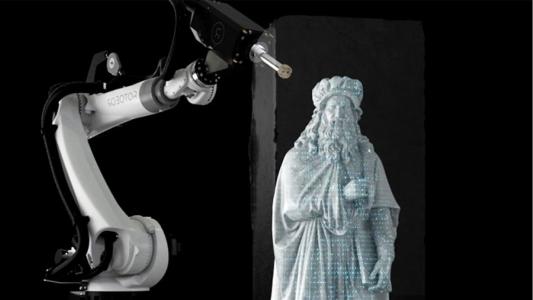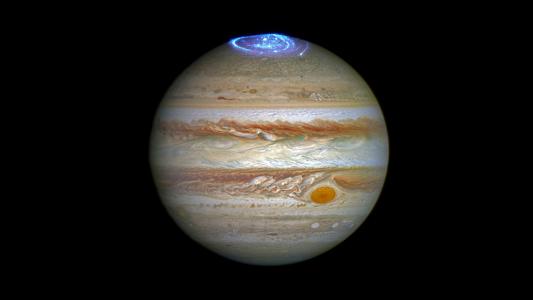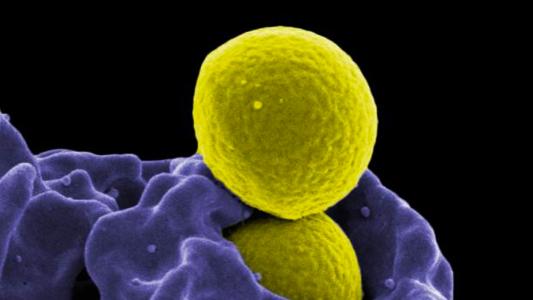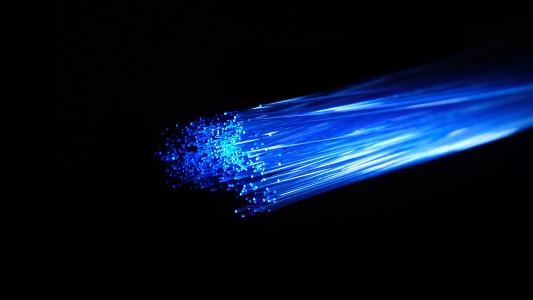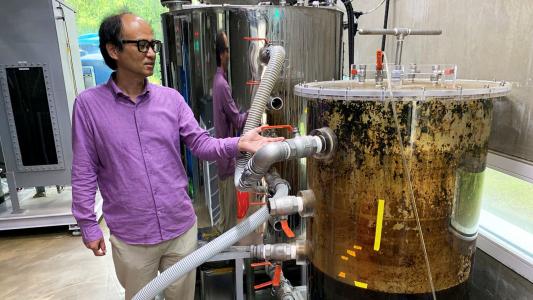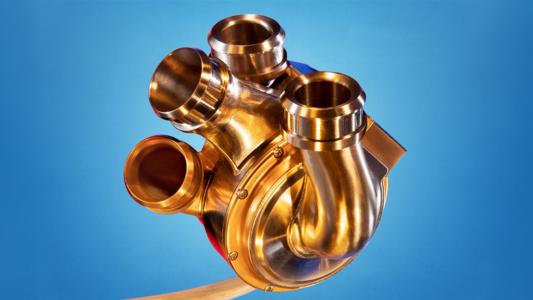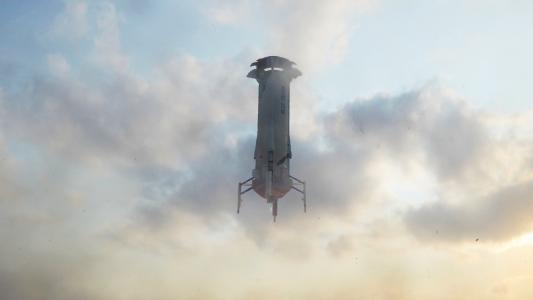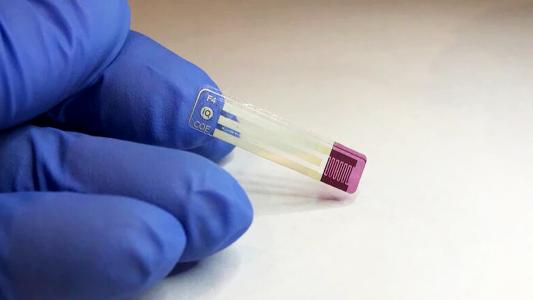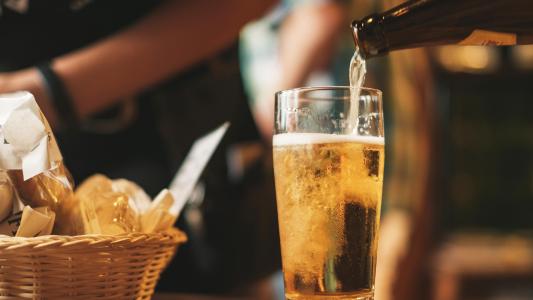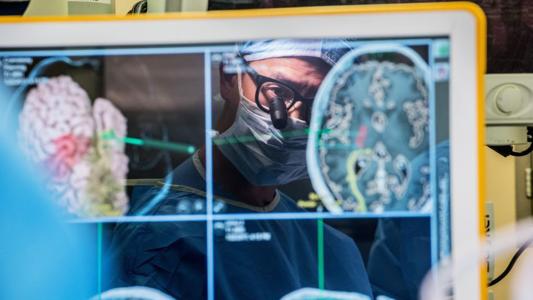A startup is stuffing teddy bears with recycled cigarette butts
Indian startup CODE Effort has developed a process for recycling cigarette butts, the world’s most littered objects.
Emergency sea otters needed to save California’s kelp forests
A conservationist suggests relocating sea otters to Northern California to eat the sea urchins destroying the coast’s vital kelp forests.
The U.S. Navy is building a solar plane
The U.S. Navy is developing a solar-powered plane that can fly for 90 days while watching military ships below.
Scientists grew healthy mice from artificial eggs cells and ovaries
For the first time, researchers have created mice from egg cells and ovaries grown from stem cells.
Facebook wants your next meeting to take place in its new VR app
Horizon Workrooms is Facebook’s attempt to bring the corporate world into the metaverse.
AI avatars bring deepfakes to the business world
A financial consulting firm has created AI avatars of its staff that can be used to quickly create deepfakes for presentations and more.
Ford replaces humans with robot test drivers
Ford Motor Company has built a pair of robot test drivers to fill in for humans during dangerous endurance tests at its Weather Factory.
Scientists listen to marsquakes to map the inside of the planet
With information garnered from marsquakes, researchers have created the first complete image of the interior structure of Mars.
GoFundMe to help people leave Afghanistan raises $6 million
A GoFundMe campaign has raised millions of dollars to help people leave Afghanistan in the wake of a Taliban takeover.
Chameleon robot can change color to match its surroundings
Researchers in Korea have made a color changing robot that matches its background colors — a precursor to future active camouflage technology.
Astronomers catch “ghosts” dancing around radio galaxies
Astronomers with the EMU Project have released a spooky image of “dancing ghosts” emanating from a pair of distant radio galaxies.
Wasps inspire a new surgical needle
The next new surgical tool may come from an odd place: parasitic wasps whose eggs eat their hosts inside-out.
Microbes inside concrete can warn us about rotting infrastructure
By learning about the bacteria that live inside concrete, scientists hope to develop early warning systems about damage.
Clues in woolly mammoth tusk reveal a lifetime of travels
Researchers have reconstructed the life of a woolly mammoth that lived more than 17,000 years ago by deciphering clues hidden in his tusk.
Pandemic prompts surge in food sharing, app says
Food-sharing app Olio is combating food insecurity by making it easy for those with extra food to get it into the hands of those in need.
Tree DNA convicts a poacher for the first time in federal court
Tree DNA from a stump found after the 2018 Maple Fire was used to convit a poacher, for the first time in federal court.
3D-printed nuclear reactor parts installed at US plant
An Alabama power plant is now using 3D-printed nuclear reactor parts, a milestone that could shape the future of nuclear energy.
The plea to save the Afghan girls robotics team from the Taliban
A human rights lawyer is trying to get the Afghan girls robotics team evacuated to Canada so its members can avoid living under Taliban rule.
Implantable “neurograins” may be the key to mind-controlled tech
A new kind of brain-computer interface uses tiny neural implants called “neurograins” to record brain activity in rats.
New organ coating could help prevent transplant rejection
A coating for donor organs that minimized the chance of transplant rejection in mice might one day eliminate the need for immunosuppressants.
Using body bags to treat heatstroke
The Pacific Northwest heat wave crushed hospitals with heatstroke victims. Doctors turned to body bags to save lives.
Fecal transplants reverse aging in brains of old mice
Fecal transplants from younger to older mice appear to reverse aging in the brains of the seniors, improving their memories and cognition.
Ancient frozen viruses hold clues to life and climate
Using new techniques, researchers at Ohio State have identified ancient viruses we’ve never seen before.
New treatment may prevent heart damage from COVID-19
An experimental drug that stopped the coronavirus from entering cells in heart organoids may be able to prevent heart damage from COVID-19.
Hungry mice show why you should take study breaks
The spacing effect — a strange phenomenon by which you retain information more readily if you take study breaks — is now less of a mystery.
Already-approved ALS drug may help Alzheimer’s patients
A small phase 2 study has found evidence that ALS medication riluzole may have potential as a drug for Alzheimer’s.
Water from abandoned coal mines can make zero-carbon energy
A wine-bottling company in Britian is tapping into the large heat source from the mine water in the tunnels below their warehouses.
What if your ideas about strangers are all wrong?
The surprising benefits of talking to strangers.
Psyche asteroid might not be a planetary core after all
The first high-res heat emissions map of the Psyche asteroid suggests the hunk of metal might not be the core of a developing planet.
3D-printed bridge reduces use of "most destructive material on Earth"
Researchers have found a way to reduce the CO2 emissions of a concrete bridge: remove the reinforcement. And the results are stunning.
NASA needs people to pretend they’re living on Mars
To prepare for a future in which astronauts are living on Mars, NASA is looking for people willing to live in a simulated Mars habitat.
Robot café hires people with disabilities to operate robo-waiters
At the Dawn Avatar Robot Café in Tokyo, diners are served by robotic avatars controlled remotely by people with disabilities.
The 2021 Disney Accelerator sheds light on Disney’s metaverse ambitions
From AI to AR to live video shopping: these are the 8 companies selected for the Disney’s yearly accelerator program.
NASA wants future humans to find this time capsule in space
NASA is sending a time capsule to space aboard the spacecraft Lucy, bound for the Trojan asteroids.
Graphene foam sucks uranium out of contaminated water
MIT researchers have developed a graphene foam water filter that eliminates uranium contamination in hours.
Kenya’s GM cassava plant gets greenlight
Kenya is moving forward with developing a cassava plant that’s been genetically modified to resist cassava brown streak disease.
The world’s first sodium-ion battery for EVs has arrived
The world’s biggest battery maker for EVs is now manufacturing a sodium-ion battery that could help end the industry’s dependence on lithium.
Pfizer’s RSV vaccine 100% effective in human challenge trial
An RSV vaccine developed by Pfizer was reportedly 100% effective in a small human challenge trial and caused minimal side effects.
Permanent hearing loss may be reversible
A new mouse study suggests we may be able to reverse permanent hearing loss in humans by tapping into a latent regenerative ability.
First neuron-level map of a monkey brain revealed
The first neuron-level 3D image of an entire macaque monkey brain could have a major impact on the world of neuroscience.
“Star shrapnel” from a supernova explosion is exiting the galaxy
A metallic star is hurtling out of the Milky Way, propelled by a supernova explosion triggered after it ate its partner star as a white dwarf.
Study shows how trees and shade can cool the urban heat island
A new study measures precisely which shade is the best at cooling cities and where we need it most.
“The Blob,” a strangely intelligent slime mold, is going to space
A strange slime mold that can think despite lacking a brain is heading to the ISS as part of an educational experiment with French schools.
US Airman, missing in action, located by underwater drones
Project Recover has located the remains of an airman declared missing in action during the Vietnam War using a fleet of underwater drones.
DeepMind’s virtual playground suggests path to general AI
DeepMind’s virtual playground, XLand, could help create general AI by overcoming the problem of insufficient training data.
This beach-cleaning robot is a Roomba for sand
An all-electric, beach-cleaning robot called BeBot can sift through sand to extract pieces of debris too small for traditional systems.
Cyclists’ stress levels could improve road safety
To improve road safety, a new study suggests we measure cyclists’ stress levels as they navigate city streets to identify dangerous areas.
Researchers have created a brain sensor swarm
Researchers at UC Santa Cruz have developed an injectable swarm of nanosenors they hope will measure the brain noninvasively.
Space manufacturing startup plans to build first off-world factory
Space manufacturing startup Varda Space Industries has raised enough money to bring its dream of building the first space factory to fruition.
Pfizer has manufactured the first batch of Delta variant vaccines
Pharma giant Pfizer has already developed and manufactured ingredients for a COVID-19 vaccine targeting the highly contagious Delta variant.
Facebook just made a huge upgrade to Oculus VR headsets
Here's how the Oculus Quest 2 just became a player in augmented reality.
Researchers edit the sugarcane plant’s genome for the first time
Researchers have edited the sugarcane plant with CRISPR for the first time. The gene-edited crop provides an opportunity for quickly developing more eco-friendly sugarcane varieties.
The first U.S. electric tugboat will replace a tug that burns 30,000 gallons of diesel per year
Crowley Maritime Corp. is building the U.S.’s first electric tugboat for the port of San Diego.
Holograph tech “teleports” Olympic badminton competition
Japanese telecom company NTT is using holograph tech to recreate Olympic badminton matches at a venue 22 miles away in real time.
Goodbye bug spray, try this bite-free clothing instead
Researchers created insecticide-free, mosquito-resistant clothing and tested it with actual bugs to confirm that it prevents mosquito bites
Helmet worn at home shrank man’s brain tumor by a third
A new brain tumor treatment shrank a man’s aggressive glioblastoma tumor by nearly a third — and all he had to do was wear a helmet at home.
Inside your nose, it’s bacteria vs. bacteria in the fight against meningitis
Researchers have found that nose drops containing “friendly” bacteria can protect people against meningitis-causing bacteria.
Water vapor found on Jupiter’s moon Ganymede
Astronomers have detected the first evidence of water vapor in the atmosphere of Jupiter’s massive moon Ganymede.
Light from behind supermassive black hole detected for first time
The first direct observation of light from behind a supermassive black hole confirms a prediction in Einstein’s theory of general relativity.
Adding one gene to rice and potatoes increased yields by 50%
The insertion of a gene found in animals prompted potato and rice plants to produce 50% more food and exhibit drought-resistant qualities.
Baby mice “dream” about the world before seeing it
Before the eyes of baby mice open, their brains appear to use retinal waves to prep their vision systems to detect objects and motion.
New antibodies may lead to a norovirus vaccine
Researchers have discovered antibodies that neutralize a variety of norovirus strains, a possible step toward an effective norovirus vaccine.
New treatment reverses age-related memory loss in mice
A treatment that reversed age-related memory loss in mice could one day treat or prevent such cognitive decline in older people.
Bipedal robot completes 5K after learning to run
Agility Robotics’ Cassie just became the first bipedal robot to complete an outdoor 5K run, completing the jaunt on a single charge.
NASA interns designed a washing machine for astronauts
NASA challenged its interns to design a washing machine for astronauts so that they wouldn’t have to keep throwing away dirty laundry.
Uber may reduce drunk driving deaths by 6%
Uber is reducing drunk driving deaths by more than 6%, according to a new analysis, suggesting that ridesharing is making streets safer.
Harvard astrophysicist will lead hunt for alien technology
Harvard astrophysicist Avi Loeb’s new Galileo Project will hunt for alien technology using proven scientific methods and equipment.
Toyota’s autonomous shuttle is optimized for Olympians
Tokyo Olympians are riding around the Olympic Village in Toyota’s e-Palette, an autonomous shuttle designed with their needs in mind.
Harvard has a vaccine against septic shock
A new vaccine platform based on biomaterial may eventually provide rapid protection against multiple bacterial threats.
How scientists turn food scraps into strong building materials
Researchers are using discarded food scraps to create a concrete substitute. It reduces food waste, and the material is edible and sweet.
DeepMind releases massive protein structure database
DeepMind is releasing a massive database of protein structure predictions that includes all the molecules in the human proteome.
Olympic swimmers get speed boost from pool engineers
We already know that Olympic swimmers are fast, but Olympic swimming pools can be engineered to be “fast,” too.
This 3D-printed graft may improve ruptured eardrum surgery
Researchers at Harvard have developed a 3D-printed graft they hope will make ruptured eardrum surgeries safer, faster, and more effective.
Will power plants move into the cloud?
A Colorado community has become a test subject for a new approach to the power grid, called a "virtual power plant" — 27 networked smart homes, with one key feature: a common brain that, in times of crisis, can autonomously optimize energy across the neighborhood.
Y Combinator launches a ‘Tinder for entrepreneurs’ to match startup co-founders
Famed accelerator hopes to make it easier for founders to find each other.
Baby exoplanet appears to be forming a moon
A unique baby exoplanet surrounded by a disc of gas and dust could unravel some of the mystery surrounding planet and moon formation.
What does whole genome sequencing tell you?
When it comes to decoding your genome, you have a menu of options, including whole genome sequencing. But how do you know what you're getting?
New vaccines may use AI to hit a moving target
Can AI create vaccines that work against mutations that haven't happened yet, groups of viruses, and virus too tricky to currently stop?
What pandemic nostalgia tells us about how memory works
The complex reality of remembering is anything but objective.
New gene therapy helps the heart repair itself after a heart attack
In a new study in pigs, gene therapy targeted the Hippo signaling pathway to heal the heart after an attack.
Autonomous boat maps seafloor from San Francisco to Hawaii without a human crew
The Saildrone Surveyor could change how we understand the ocean.
New AI “engines” can read and understand on multiple levels
Primer’s new AI tools are expert readers, capable of analyzing long bodies of text far faster — and more accurately — than humans can.
FDA approves first drug to treat lymphoma in dogs
The FDA has approved a medication specifically designed to treat lymphoma in dogs, potentially helping extend the lives of thousands of pets.
NASA’s new balloon-borne telescope is ready for liftoff
NASA’s new balloon-borne telescope could let astronomers study distant objects with the latest tech at a fraction of the cost of Hubble.
Lab-grown foie gras eliminates force-feeding
Gourmey is developing lab-grown foie gras, using stem cells to produce the delicacy without subjecting birds to the practice of gavage.
CRISPR used to create first gene-edited opossums
CRISPR technology has been used to create gene-edited opossums, a breakthrough that could have huge implications for medical research.
Sculpting robots chisel art out of marble
Italy's Robotor is inspiring artists to pick up Carrara marble as a medium by delegating the laborious carving process to sculpting robots.
Amateur astronomer discovers new moon of Jupiter
An amateur astronomer has spotted an unknown moon of Jupiter, marking the first discovery of a planetary moon by a non-professional.
“Mirrored” fabric may be de rigueur for a warming world
Inspired by the rising temperatures of climate change, researchers have developed mirrored cooling fabric.
The world’s first lab-grown coral could help save the ocean reefs
Researchers have figured out how to keep sea anemone and coral cells alive in the lab. This new type of coral garden could help research from evolutionary biology to human health.
Lucky accident shows how immune system can beat MRSA without antibiotics
Researchers have accidentally found that blocking caspase enzymes can make mouse immune responses more robust.
Japan breaks world record for fastest internet speed
Engineers in Japan have set a new world record for fastest internet speed — 319 Tb/s — using a specially developed fiber-optic cable.
This eco-toilet pays for human waste in digital currency
The BeeVi eco-toilet turns human waste into energy – and pays for the privilege.
This artificial heart uses magnets and spinning disks to reinvent the heart
Researchers have built an artificial heart: a titanium, pumpless, device with spinning magnets.
Is the US military testing an anti-aging pill?
The U.S. military is developing an anti-aging pill that is designed to inhibit performance reduction that comes with aging.
Historic Blue Origin flight included four people — but no pilot
A Blue Origin flight on July 20 marked the first time a pilotless spacecraft has flown with a crew consisting solely of space tourists.
The world’s first needle-free diabetes test
A needle-free diabetes test that measures glucose levels from saliva, not blood, could be ready for consumers as soon as 2023.
Why waterless beer is the future
A new beer startup is creating concentrated beer by temporarily removing the water to reduce the carbon footprint during shipping.
Neuroprosthesis lets paralyzed man “speak” whole words again
An experimental neuroprosthesis that translates brain activity into words on a computer screen has given a paralyzed man back his “voice.”
A bison bridge could bring herds over the Mississippi
The proposed Bison Bridge would be the world's longest wildlife bridge, providing safe passage for the animals over the Mississippi River.
